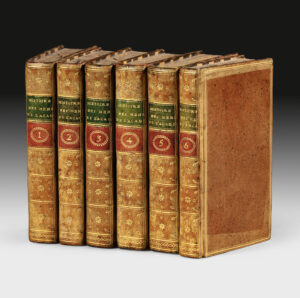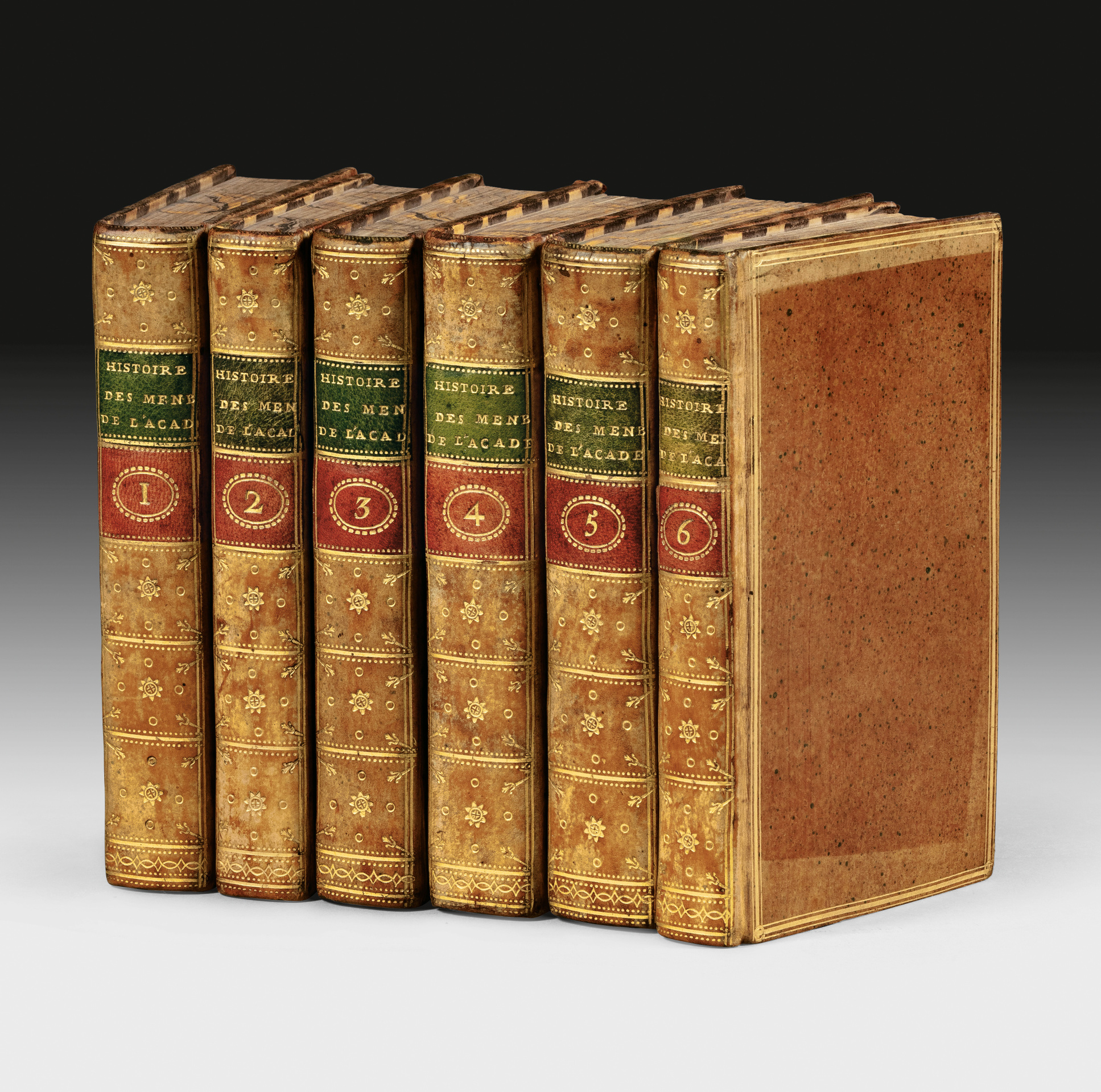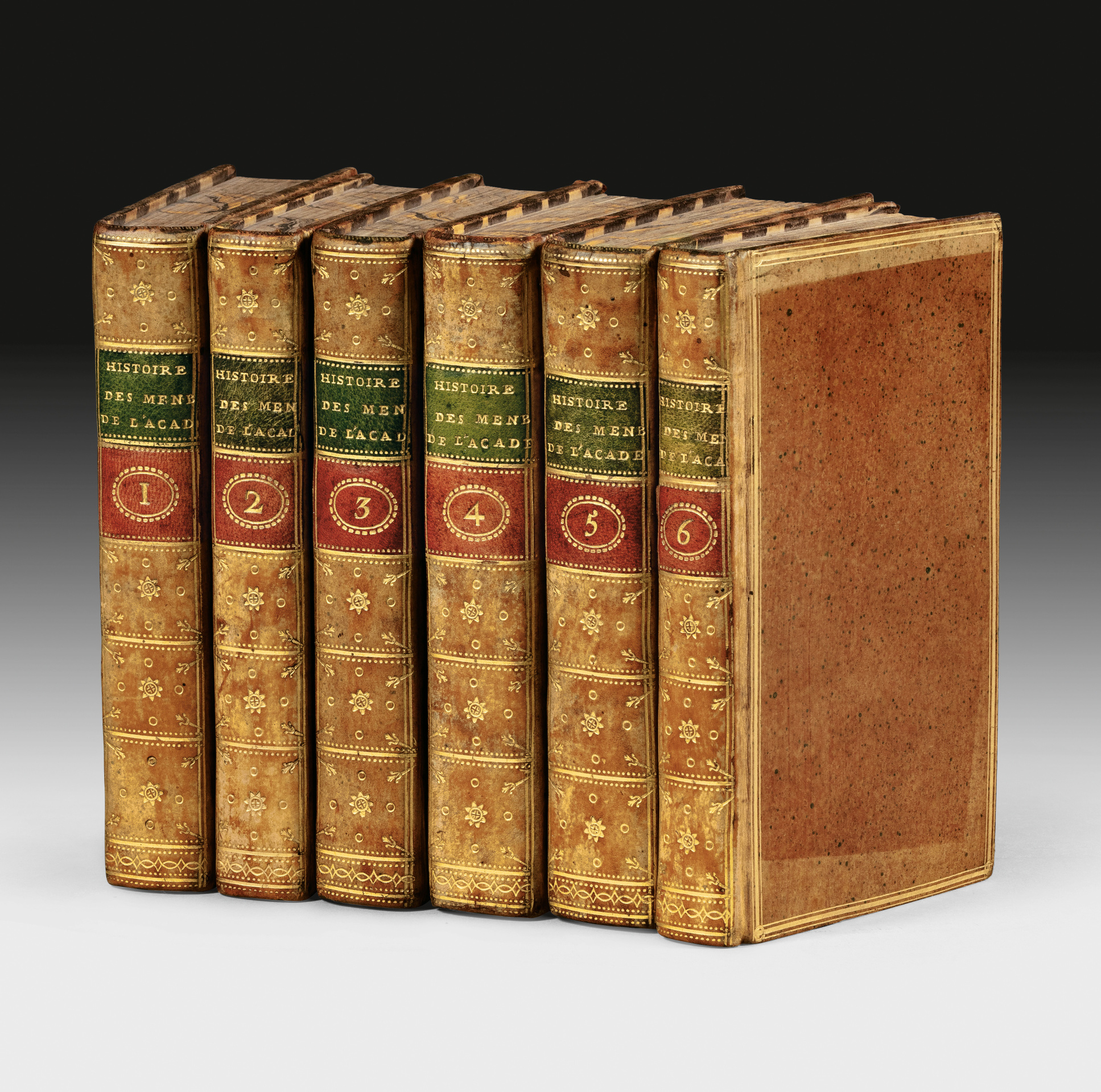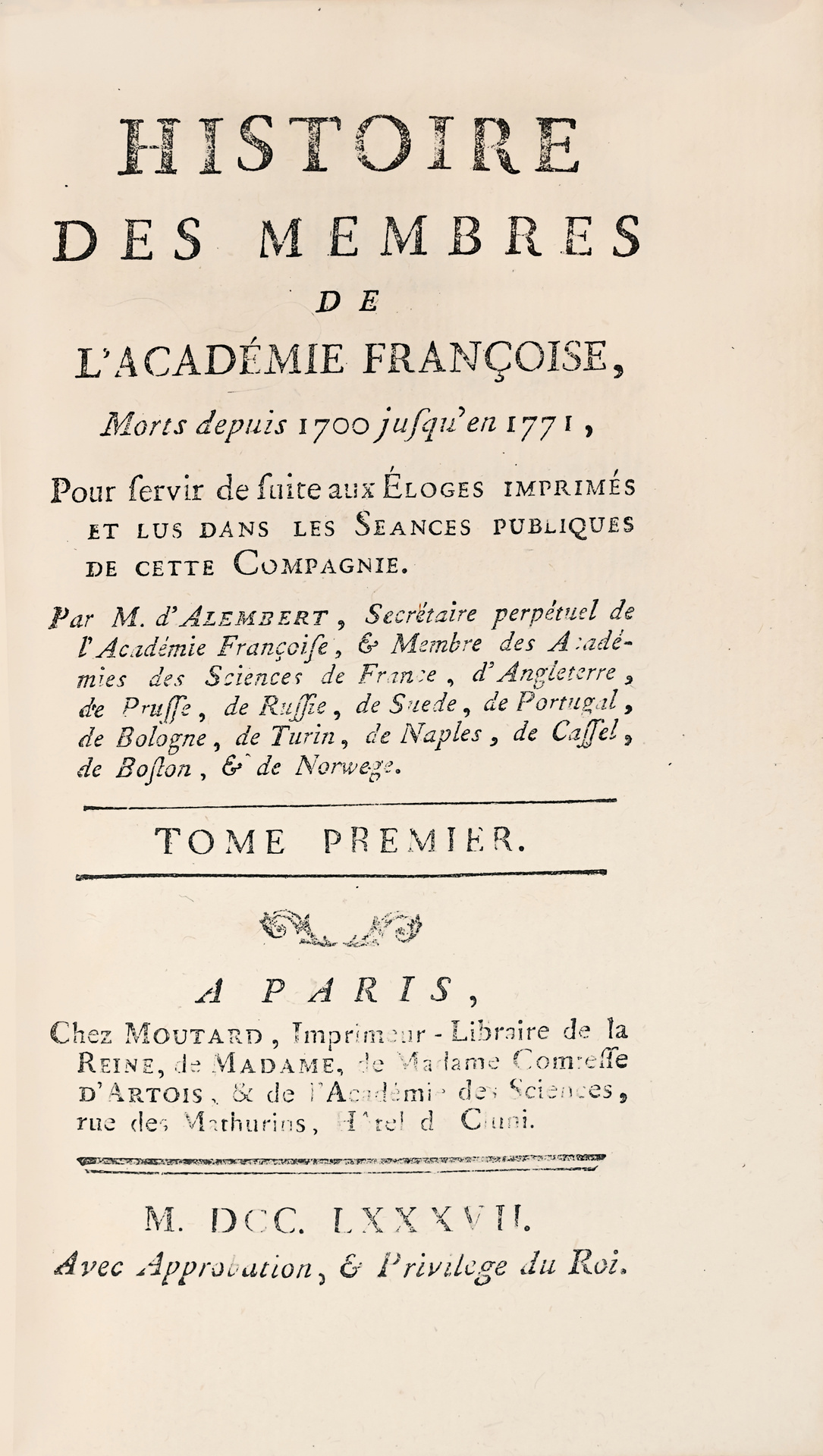A Paris, Chez P. Moutard, 1787.
6 volumes 12mo [166 x 96 mm] of : I/ (1) bl l., xxxiv pp, vj pp, 559 pp, (5) pp., (1) bl. l.; II/ (1) bl. l., (2) ll, xii pp, 437 pp, (1) bl. l.; III/ (1) bl. l., (2) ll, 523 pp, (1) bl. l.; IV/ (1) bl. l., (2) ll. 637 pp., (1) bl. l.; V/ (1) bl. l., (2) ll. 668 pp., (1) bl. l.; VI/ (1) bl. l., (2) ll. 378 pp. full blond granite-like calf, three gilt fillets around the covers, smooth spine finely decorated, green and red morocco title and volume number, sprinkled and decorated edges. Contemporary binding.
First collective edition, the last five of the six volumes appêring here for the first time. The eloges are biographies which were rêd at the sessions of the academy. The speeches are often annotated for more details. The term "eulogy" should not be taken in the modern sense, as these are not only biographies and scholarly studies of a life, but also criticisms of a work and a character, and all these lives provide valuable information. Jên Le Rond d'Alembert was elected to the Académie française on 28 November 1754. He became its permanent secretary on 9 April 1772. "The 1970s to 1980s represent the consolidation of d'Alembert's position as master of the French Academy and arbiter of literary matters. His attempt to impose standards for poetry on the Academy was violently rejected by the public. The purpose of all writing is to express thoughts clêrly, and the Académie will judge a poem to be good when it comes closest to prose, he declared in his Réflexions sur la poésie rêd at the Académie in 1760 and published in 1767. Fréron cries out against "the irruption of Archimedes' children into the sanctuary of poetry. She expires struck by the fatal compass"; and Diderot concludes: "Let him stick to equations; that is his lot. On the other hand, his other public speeches at the Academy were very successful, and he used these occasions to prêch tolerance and philosophy. His "eloges" gave him the reputation of Fontenelle's continuator, his predecessor in the genre, Les Éloges lus dans les séances publiques de l'Académie française were published in 1779, and a posthumous edition of his Histoire des membres de l'Académie française morts depuis 1700, jusqu'en 1771 in three volumes (vols. 4 to 6 in 1787) was published in 1785. During his last yêrs, d'Alembert incrêsingly replaced the aristocracy, which he had always opposed, in the role of patron for young literary men whom he helped in their careers. The most illustrious of his disciples was Condorcet, of whom he made Watelet his executor. He was buried as an unbeliever in a common grave. John Pappas. A very fine copy bound in contemporary blond calf, fine colouring.
See less information




